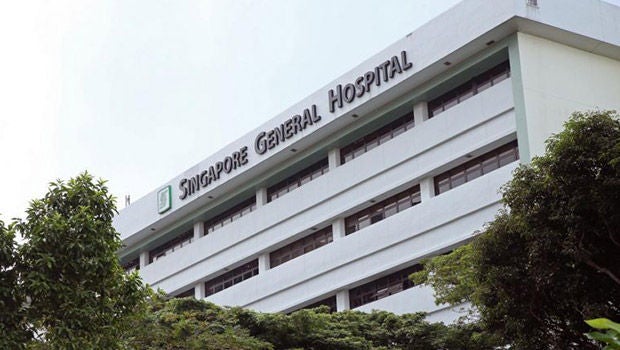
About half the 80,000 patients admitted to Singapore General Hospital are given antibiotics on admission, but not all of them have bacterial infection.PHOTO: ST FILE
Early discharge, costs saved when drug intake ends in a day if bacterial infection found unlikely
Each year, more than 100 patients at Singapore General Hospital (SGH) are able to go home 7½ days earlier, saving about $11,000 in treatment costs - all because their use of a strong antibiotic was stopped after just one day.
An expert team reviewing their cases had advised their doctors that it was highly unlikely that these patients had a bacterial infection, so there was no need for them to be on an antibiotic.
About half of the 80,000 patients admitted to SGH yearly are given antibiotics, but not all have a bacterial infection.
It takes about three days for test results to tell if there is an infection. So if the symptoms point to a possible bacterial infection, doctors want to start treatment as soon as possible, rather than risk the patient's condition becoming more difficult to treat.
About a third of patients given antibiotics are prescribed a broad spectrum antibiotic - one that would work against a wide variety of bacteria. This antibiotic upsets the balance of bacteria in the digestive system, often resulting in patients suffering from diarrhoea. They may also get rashes, liver and renal problems, and a drop in platelet count.
SGH has been doing these reviews of patients in the first 24 hours after admission since 2010. It is the only hospital in Singapore to do so.
This saves about $1.3 million a year. More importantly, patients are saved from the side effects of the drug, and their risk of developing antibiotic resistance is reduced.
Because they are taken off the antibiotic early, patients are less likely to suffer from the side effects, and are able to get well faster and be discharged earlier.
Most hospitals review the use of antibiotics after three days, when the results of the tests for bacteria are available. SGH opted for earlier reviews, as the longer a patient is on an antibiotic, the higher the risk of resistance, said Associate Professor Andrea Kwa, assistant director of research at SGH's Department of Pharmacy.
"The once-easily treatable illnesses, such as urinary tract infection, become difficult to treat, leading to longer hospital stays, larger medical bills and higher risks of death."
Prof Kwa led a team in a retrospective study of 12,000 patients at the hospital from 2010 to 2014. The results were published in the International Journal of Antimicrobial Agents in May this year.
In every case where the team suggested a patient be taken off antibiotics, the full test results could not find any bacterial infection.
In fact, about 40 per cent more patients could have gone down this route, but their doctors chose not to stop their antibiotic treatment.
In terms of patients returning to hospital within 14 days, those who were taken off the antibiotic after one day also fared better.
When asked why other hospitals here have not adopted the same practice given the good results, Dr Jasmine Chung, director of SGH's Antimicrobial Stewardship Programme, said different hospitals approach the issue differently.
She added that SGH is able to offer the 24-hour review because it has the technology, support from infectious disease specialist pharmacists and buy-in from doctors.
It has five pharmacists specialising in infectious diseases, including Prof Kwa. Other hospitals may have one or two, or even none.
Even today in SGH, doctors still give about 30 per cent of patients antibiotics in spite of the team's recommendation that it is unnecessary.
And what about the advice that patients must always finish the course of antibiotics? Prof Kwa said that is true only if there is bacterial infection, to prevent resistance in the bug. But there is no harm in stopping early if there is no infection.













 Get it on Google Play
Get it on Google Play